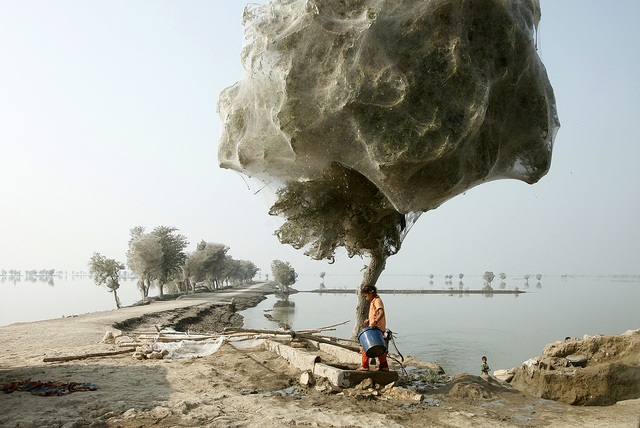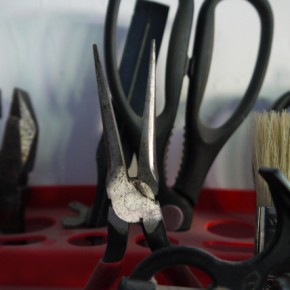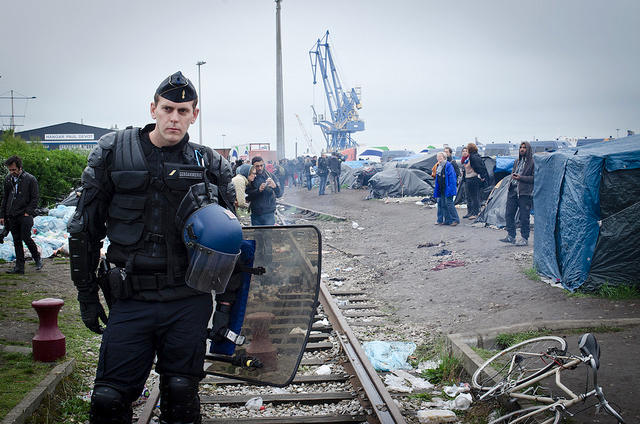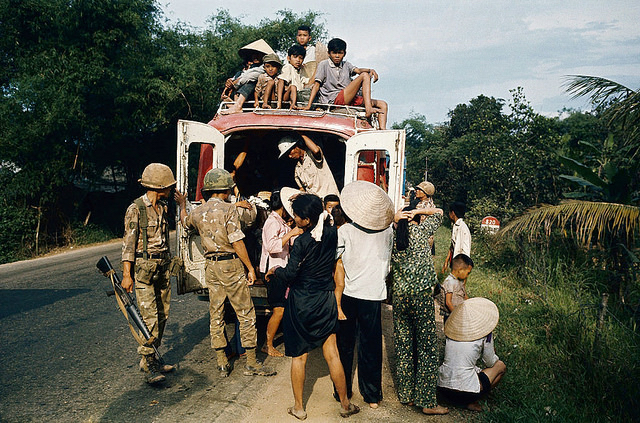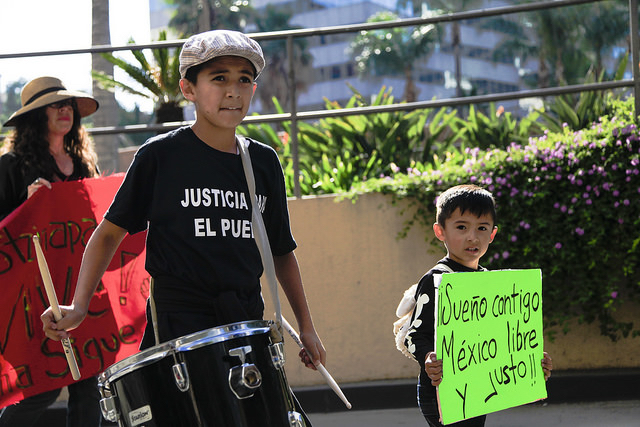I just got off the phone with a Pakistani-American friend, who had just read a Facebook post of mine. He called me to ask if I could elaborate on the first sentence: “I have no patience for people in the Diaspora who say that Pakistan is finished.” I replied that I’m aggravated with how expats often give a desperate assessment of our country’s prospects. He cautioned me against blind frustration, because there are specific reasons that our diaspora feels the need to be so bitter and pessimistic. It was a fascinating conversation, because it reminded me of the unusual behavior of my family when I attempted to move back to Pakistan earlier this year.
My plane landed in Islamabad in mid-January. Due to Tahir ul-Qadri’s Long March, and the corresponding shutdown of the capital by security forces, I was shuttled through side roads to the home of my uncle’s in-laws in Rawalpindi. When I arrived, after the initial formalities, a bizarre series of conflicts ensued.
Over the next month, within the complicated nexus of Pakistani gender-relations where his patriarchal word was effectively law, my uncle rallied our family members against my decision to leave the United States. I remember a number of harsh statements that only make sense after this telephone conversation. In private conversation he said, “Bilal, I hate this country. If I had any choice about coming here, I wouldn’t do it.”
In Urdu conversations with others that he thought I couldn’t understand as a foreigner my uncle said something similar. “Everyone is trying to get out of here, and he’s crazy for trying to come back,” and “This country is garbage and it’s never going to change.” Strangely, this would switch to a hysterical defense of Pakistan if it was a conflict with another power, such as India or the United States. This nationalist urge paradoxically exists alongside the self-hate.
And yet, he did not always feel this way. There was a time when my uncle was young, and looked over the pristine fields of the tropical Punjab, and, breathing in deeply, would say, “This country is the most beautiful place in the entire world.” Thirty years later, and he insists on the exact opposite when his nephew stubbornly decides to return. How is such a thing possible?
It’s complicated, as anxieties about class and imperialism certainly factor into it, along with everything else. But most crucially, the answer is survivor’s guilt.
A large part of immigrant folklore involves escaping adversity. For Pakistanis who left in the late 1970s and early 1980s, there were a number of factors inspiring their flight. Better economic prospects in the West. A better future for their children. The emerging fundamentalisms of General Zia ul-Haq. The unfolding horrors of the Soviet-Afghan war. The list goes on, and the reasons are endless, but they all share the characteristics of intolerable material conditions. And the need to flee them. Immigration is often less about love for the destination country, than it is a bitter escape of the home country.

And what happens when we do? There is a hidden trauma that many of us experience when we hear about the current state of affairs back home. Electricity shortages. Drone strikes. Acid throwing by the in-laws of defiant wives. Pogroms against Christians. Honor killings. Some Pakistanis certainly take this as evidence that the United States is better for them, but most often, the miseries of home haunt us, diminishing our self-worth. How could we not feel a great and profound sadness?
First-generation immigrants, and next-generation ones like me, often feel like we lucked out. This is exactly why immigrants from ailing states likes mine are frequently believers in the soothing mythologies of the immigrant dream – like those which America is known to promote. We are permutations of Horatio Alger. The illusions of market-driven meritocracy can be intoxicating.
Why? Because they allay our guilt as immigrants, succeeding as professionals, in the Western middle class. Given the terrible state of affairs back home, the only way out is to seek refuge in narcotic narratives. My uncle, for example, has to believe that Pakistan is trash, and unable to be changed, in order to justify his own move from the country. It’s the only way he can live with his decision to uproot himself.
If Pakistan was not inherently trash, then the very fact that he left it would be in question, rather than staying and attempting to build a life of gradual personal uplift there, instead of in the West. If Pakistan was not rhetorically argued to be locked in dysfunction, then the people who left would immediately begin to question themselves for doing just that: abandoning our home. Every poorly-elaborated reason a Pakistani offers for why Pakistan is stuck the way it is strikes me as an expression of denial. It is driven by a resolve not to question why we sought better living conditions in the West, rather than staying behind, and fighting for them in Pakistan.
Anyone who deviates from these myths, like me, is dismissed as “not understanding Pakistan” by being hopeful, because the alternative is admitting our own feelings that we abandoned the country, and continue to by not channeling our energies towards productive social change back ‘home’. Of course, we had to leave. Of course, we can’t contribute positively. That’s just because of how Pakistan is. There’s nothing we can do about it.
Immigrant children, who return to their native lands, are often denigrated when visiting their ancestral homes. The questions are always the same. Aren’t you safer here? Why would you go back if you can do everything here? You won’t have a good (read: rich, sheltered, normal) life there, so why return? And so on. Even though such questions are expressions of deeper personal issues, they are still fair questions that need to be answered – if only for our own reflection.

Worthwhile responses compel us to remember the didactic mechanics of market-driven societies. Life has always been a struggle. But exile can only be considered worthwhile for those who reap handsome rewards for their efforts. Lower class immigrants who send home remittances are usually the ones with the most doubts. They still constantly dream of going back, usually in higher numbers than more well-off immigrants, and often because it is a reaction to a lack of control they feel exists over their lives in an increasingly laissez-faire West. And they are always wondering if being so far away is worth it given how hard they have to work.
Luckily, for efforts that push for an alternate way of doing things, times of recessionary crisis push middle and upper-class immigrants to indulge such doubts, too. The precarious middle class finds itself expressing its own spiritual exhaustion that unites it with those we like to call “uneducated,” and American researchers begin to find themselves in the same frustrated company as Persian Gulf construction workers. Suddenly, despite very real differences in wealth and personal security, we find ourselves all saying variants of the same thing.
This was made clear when a relative told me about his plan to move back to Pakistan, “Bilal, I didn’t come to this country to have five dollars in my bank account.” For my relative, if a five dollar checking account balance is unavoidable, then it is far better to at least have those dollars in an obviously fetishized Pakistan. If life is to be a struggle, and a series of strangely occult sacrifices of alienated blood and toil for every cent of personal wealth that disappears in basic living expenses, then why not at least conduct those arts in a setting which you identify as your native land? No one wants to risk poverty in the West, when their heart is yearning for a constructed idea home in which they can seek refuge from their current situation.
Perhaps it was inappropriate of me to discuss my relatives in this article. Nevertheless, I think it’s important, because we all have to overcome attitudes about what Pakistan supposedly “is,” before we can have subtler discussions of how it “was,” or what it might be, of which open discussion of and within our families is an important step. One of those attitudes is one of national inferiority that is, ultimately, just a way to avoid taking responsibility for Pakistan’s situation. Unless we are willing to tackle that directly, and openly, the idea of “keeping things private” through familial respect is just a way of rationalizing the status quo. And here, that status quo has arisen because people do not want to admit their feelings to themselves.
It can get rage-inducing, for sure. But, as my friend told me in our phone call, it’s a feeling that arises from a genuine desire to see Pakistan change for the better. Given that, I believe that grassroots organizing in Pakistan can be very successful at attracting the attention of a Diaspora that is already notable for its generous charity work, and its support of Pakistani education and medical care. The alternative is to continue clinging to immigrant fantasies which allow us to avoid coming to terms with the situation that sent us packing, and scattered us all over the world, with our people miserably dreaming of home in a hundred different countries.
Photographs courtesy of U.K. Department for International Development and Charles Roffey. Published under a Creative Commons License.
